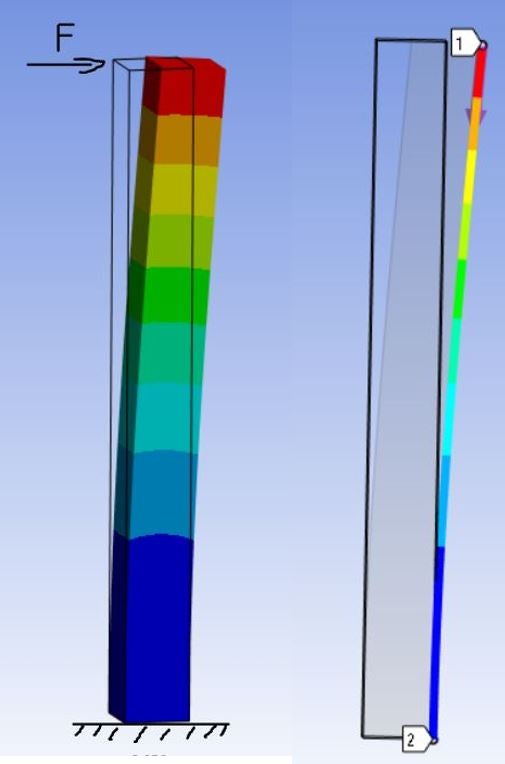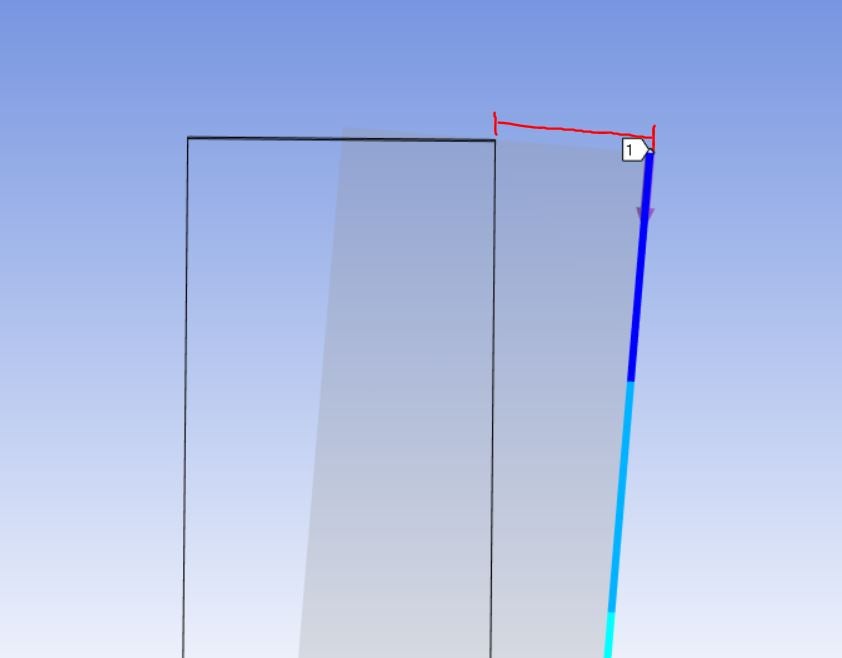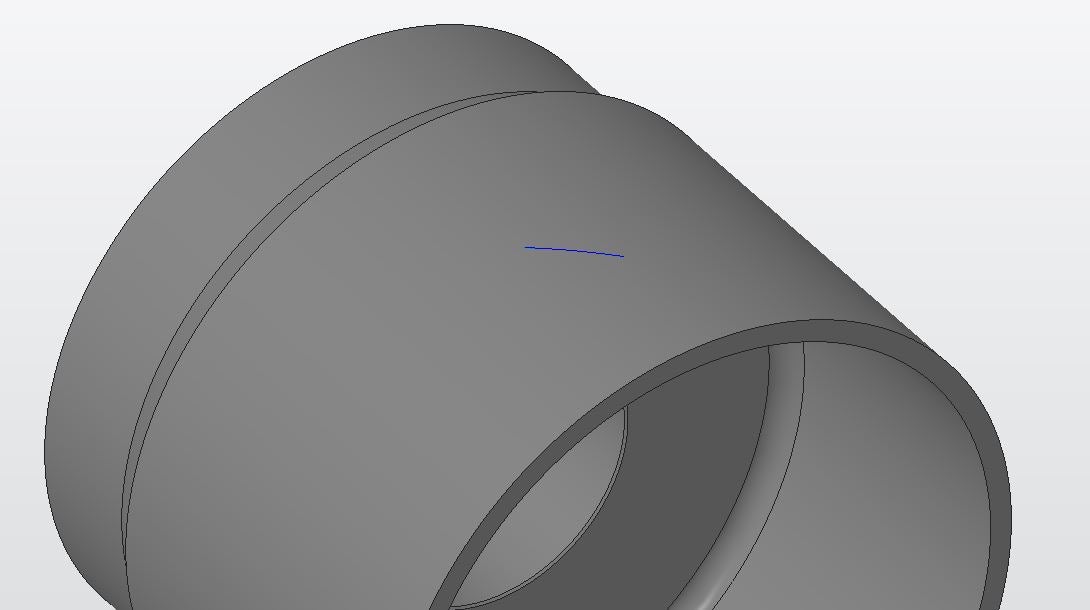-
-
July 18, 2023 at 9:19 pm
diswandu
SubscriberI simplified the problem down to its core issue to make it easier to describe. Basically, I want to know how the length of a predefined line changes when I apply a load. In this case I used one of the edges that should be slightly compressed.
My first instinct was to ask for the total deformation along a path and use the maximum value but I'm unsure if that gives me the actual length difference of the path and not just the distance I marked in the picture below.
Is there a nice way to measure the compression/elongation of a line?
-
July 18, 2023 at 10:04 pm
peteroznewman
SubscriberPlot the directional deformation and assign an axis that is parallel to the line.
-
July 21, 2023 at 10:36 pm
diswandu
SubscriberThank you for the reply!
If I assign a parallel axis, doesn’t that only give me the height difference of the top end of the line and ignore the fact that the edge is curving to the right?
Sorry, I probably should have been more specific with my question. The problem is that my original geometry is not a straight line but curves around a cylinder, so I can’t assign a parellel axis. It’s supposed to simulate a strain gauge but I’m not interested in the strain, only in how much the line deforms.
-
-
July 20, 2023 at 7:47 pm
diswandu
Subscriber.
-
July 23, 2023 at 12:42 pm
peteroznewman
SubscriberTo get an accurate measurement, turn on Large Deflection.
In figure (a), Large Deflection is turned off. The force at the tip causes the straight line to deform downward in a straight vertical direction. The x deformation of the tip is zero, but the the y deformation is positive. That causes the measured length of the beam to be longer, which is inaccurate.
In figure (b), Large Deflection is turned on. The nodal positions are updated as the load is applied. The tip of the beam moves to the left with a negative x deformation as well downward with a positive y deformation. If you integrate along the length of the beam, you will find the length of the beam remained practically constant.
-
- The topic ‘measure compression/elongation of a line’ is closed to new replies.



-
4673
-
1565
-
1386
-
1236
-
1021

© 2025 Copyright ANSYS, Inc. All rights reserved.











